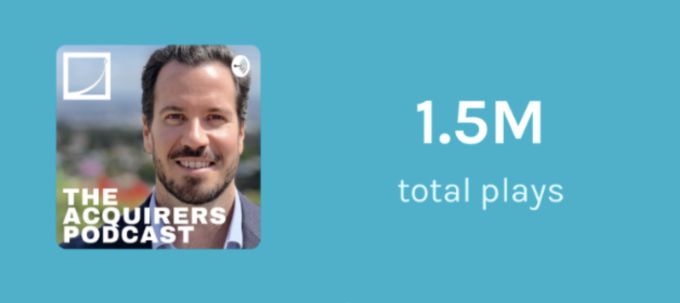During his recent interview with Tobias, Andrew Walker, Portfolio Manager at Rangeley Capital discussed Why #neversell Is Cyclical. Here’s an excerpt from the interview:
Tobias: Where do you fall on never sell or selling as a value guy? What’s the process?
Andrew: I think you sell, but you sell– I’m not a never sell guy. And I do think a lot of never sell is the current environment where we’re looking at companies that have scaled that we’ve never seen before. If you’re in the 1920s and you practice never sell, any decade but this decade, never sell would have been an awful decade to practice. I think some of never sell is 0% interest rates, lets you pull a lot of the future value forward. I think some of never sell is a correct identification that, in today’s environment– Walmart 50 years ago, they were going to take a lot of value, but they couldn’t take all the value. Whereas today, if you’re the winner in a market, you take all the value in that market, and you might take all the value and every tangential market to you. I think a lot of never sell is identifying, hey, you don’t sell a business when it’s priced at 50 times earnings because if it goes and takes five tangential markets, it’s two times earnings. I disagree with– I think they’ve identified something, hold really good companies until they take everything they can take. I think never sell will reach its limits at some point as well.
Tobias: Yeah, I think it’s cyclical too, we saw it in the 70s with the NIFTY 50. I think we saw it also in the late 1990s, not with the dotcom stocks but just there were lot of really good stocks. Walmart was one. Microsoft was one.
Andrew: Great point.
Tobias: GE. GE, not such a great business now. Neutron Jack was the CEO of probably the preceding decade at the time. All of those companies just bumped sideways for 10 or 15 years after that point. Even though there were great businesses underneath and still compounding at higher rate, they were just too expensive and it took a while for the underlying business to catch up with the stock price.
Andrew: Microsoft is an interesting one because Bill Gates retires– GE would be different because I think people look back on Jack Welch a lot differently with the benefit of hindsight. Microsoft is really interesting because Bill Gates retires, and he hands the greatest portfolio of tech assets in history to–
Tobias: Balmer?
Andrew: Steve Balmer. He hands him the greatest, and the guy bungles it for 15 years, and if he hadn’t been nicely forced out, I mean, what does Microsoft do? They missed a ton of boats, but their assets were so good that they could survive 15 years of mismanagement. You look at a lot of these companies today, Facebook, Amazon, their founders still have a very long runway ahead of them.
So, I don’t think it’s a super near-term problem. But at some point, someone else is going to be running those assets– Apple, Tim Cook has been great, but you do sometimes look at Apple and say, “Hey, what is Apple done under him aside from continue the Apple iPhone, Apple Watch?” Everything under Steve Jobs, they’ve just continued in those assets were so great. But they haven’t really introduced anything new, I would say. Facebook, Amazon, all these guys, at some point, someone else is going to run them, and how does that look after five years of someone who isn’t the founder running them?
Tobias: I think AirPods have been pretty successful. That might be one product people like.
Andrew: You’re probably right, but they’re successful, but they’re built on the iOS ecosystem. Any other company would love to have an AirPod success, but does that really budge the needle for Apple?
Tobias: Yeah, that’s fair.
You can find out more about Tobias’ podcast here – The Acquirers Podcast. You can also listen to the podcast on your favorite podcast platforms here:
For all the latest news and podcasts, join our free newsletter here.
Don’t forget to check out our FREE Large Cap 1000 – Stock Screener, here at The Acquirer’s Multiple:




